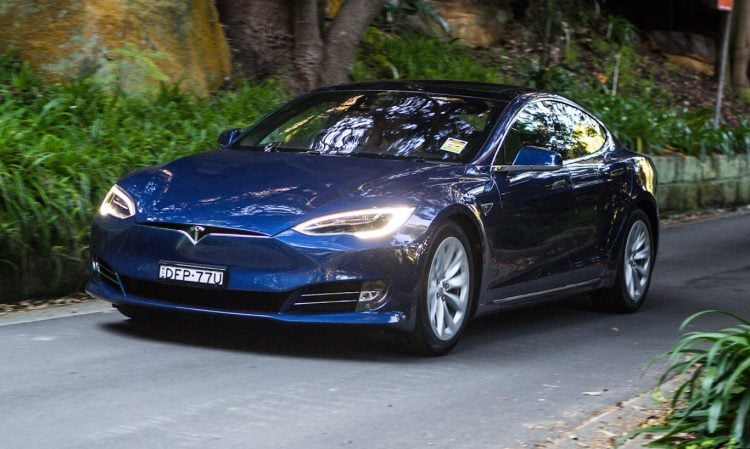In 2023, fuel prices have surged to new heights, leaving many consumers questioning their current vehicle choices. According to Bloomberg Green, the average global price of gasoline has risen by 15% compared to last year, driven by geopolitical tensions and supply chain disruptions. This scenario has heightened interest in alternative fuel vehicles, making the debate between electric vehicles (EVs), hybrids, and traditional gasoline cars more relevant than ever. In this article, we’ll explore which option might be best for you amid these price hikes, delving into cost-efficiency, environmental impact, and overall performance.
The Rise of Electric Vehicles (EVs)
Why Choose EVs in 2023?
Electric vehicles have been gaining momentum over the past decade, with models from Tesla, Rivian, and Hyundai leading the charge. According to Electrek, EV sales soared by 40% in the first half of 2023, reflecting their growing popularity. Here are a few reasons why you might consider an EV:
- Fuel Savings: With electricity costs significantly lower than gasoline, charging an EV can save you hundreds of dollars annually. The International Energy Agency (IEA) reports that driving an EV is approximately 50% cheaper per mile than a gas vehicle.
- Environmental Impact: EVs produce zero tailpipe emissions, contributing to reduced air pollution and a smaller carbon footprint.
- Incentives: Many governments offer tax credits and rebates for EV purchases, reducing the initial cost.
EV Charging Infrastructure
One of the main concerns for potential EV buyers is charging infrastructure. However, the situation is rapidly improving. By October 2023, InsideEVs reported that the number of public charging stations worldwide had increased by 25%, with companies like ChargePoint and Tesla expanding their networks.
- Home Charging: Installing a home charger can provide convenience and lower electricity costs.
- Public Charging: Rapid chargers can replenish up to 80% of an EV’s battery in about 30 minutes, making long-distance travel feasible.
The Versatility of Hybrids
Advantages of Hybrids
Hybrid vehicles, such as those offered by Toyota and Ford, bridge the gap between EVs and gas cars. They use a combination of gasoline engines and electric motors to improve fuel efficiency.
- Fuel Efficiency: Hybrids can achieve 20-35% better fuel economy than traditional gas vehicles, according to AutoCar.
- Lower Emissions: While not as clean as EVs, hybrids produce fewer emissions than gas-only cars.
- No Range Anxiety: Hybrids don’t rely solely on batteries, eliminating the fear of running out of charge.
Hybrid Models to Consider
- Toyota Prius: A classic choice known for reliability and efficiency.
- Ford Maverick Hybrid: A new entry with a compelling mix of utility and economy.
- Hyundai Ioniq: Offers competitive pricing and excellent fuel economy.
The Familiarity of Gas-Powered Cars
Why Some Still Prefer Gas Cars
Despite the rise of EVs and hybrids, gas-powered cars remain popular due to several factors:
- Initial Cost: Generally lower upfront costs compared to EVs and hybrids.
- Availability and Variety: A wide range of models and options are available from brands like Nissan and Volkswagen.
- Refueling Convenience: Gas stations are ubiquitous, making refueling fast and convenient.
However, with the volatile fuel prices in 2023, the cost of owning a gas vehicle has become more burdensome. Reuters Mobility notes that the average cost per gallon has reached $4.50 in the United States, pushing consumers to reconsider their long-term vehicle choices.
Making the Right Choice: A Comparison
To help you decide between EVs, hybrids, and gas cars, consider these factors:
- Budget: Evaluate the total cost of ownership, including purchase price, fuel, maintenance, and incentives.
- Driving Habits: Consider your daily commute and the availability of charging stations.
- Environmental Concerns: Determine how important reducing your carbon footprint is to you.
- Technological Preferences: Are you comfortable with new technologies, or do you prefer the familiarity of a gas engine?
Recommendations for Buyers
- If you’re environmentally conscious and have access to reliable charging, an EV could be the best choice, especially with incentives and long-term savings on fuel.
- For those who want a balance of efficiency and convenience without full reliance on charging infrastructure, hybrids offer a compelling alternative.
- If initial costs and widespread refueling options are your top priorities, a traditional gas car might still suit your needs despite rising fuel prices.
Conclusion: Future of Mobility
As fuel prices continue to climb in 2023, the decision between EVs, hybrids, and gas vehicles becomes increasingly significant. Each option has its merits, and the best choice ultimately depends on your personal preferences and circumstances. As technology advances and infrastructure improves, the landscape of personal transportation will continue to evolve. What are your thoughts on the future of mobility? Share your opinions in the comments below and join the conversation on sustainable living.
By making informed choices today, you can not only save money but also contribute to a cleaner, more sustainable future. Whether you opt for an EV, a hybrid, or a traditional gas car, understanding the implications of your decision is crucial in these changing times. As we look ahead, embracing innovation and sustainability in our transportation choices will be key to navigating the road ahead.

